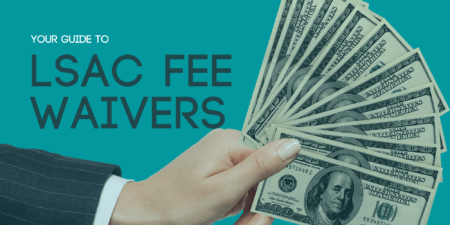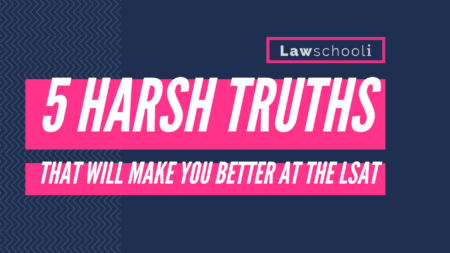Hi all. Early decision deadlines are looming on the horizon, so we wanted to list some for you and discuss early decision a bit. Why? Because ED is a big decision. If you are familiar with the process, then skip ahead and you’ll find the early decision deadlines for the the T-14 schools, schools that are often ‘reach’ schools for an applicant.
What is Early Decision?
First, you might be wondering what is ‘early decision’ exactly. Early decision is a process where you submit your application early and it is reviewed quickly in exchange for your binding promise that you will withdraw all other applications to other law schools if you are accepted. Basically, if you get in, you have to either attend that law school or not attend law school at all.
Early decision is typically thought to give a student an advantage over ‘regular decision’ applicants. You give the school something: they know you will be coming. In exchange, they give you something back: increased odds of admission along with a quick review and decision. Now, they don’t promise you better odds, but it’s generally in their interest to admit any qualified applicant who applies ED. It reduces the amount of offers they have to give out and helps them plan the rest of their admissions strategy. These incentives mean your odds are generally increased. Right now, with law school applications at a trickle, the ED option should give you a definite advantage.
If they don’t accept you via ED, then you are no longer bound. So, say you are put on the waitlist: they might still accept you later on, but you are off the hook as far as having to go there.
Should I Use Early Decision?

Students should use ED only for ‘reach’ schools, schools where either their GPA or LSAT or both are slightly low, making admission to the school through regular decision less likely.
Basically, if you want to use early decision, you have to know with absolute certainty that you will be happy attending that school. Early decision is serious business. You can’t do it and then go back on your word later. Even if it isn’t a legally binding contract, all law schools take it very seriously and enforce it amongst themselves. Say you renege on a promise to attend school A. If school B, the one you want to go to now, finds out about it, they will rescind your admission.
Very few people have tried to break an ED contract, but, invariably it seems, they get found out and every law school rejects them. You might have trouble even getting in to other schools in subsequent years. Law schools are like elephants. Or maybe gangsters. They have a long memory. They do not forgive, and they do not forget. Just don’t even think about breaking an ED agreement. You are a future lawyer now. You have to abide by your agreements.
Basically, there are two requirements for using ED. You have to be sure you want to go to that school and you have to be sure you want to go at full price. Let’s talk more about that:
Early Decison & Law School Scholarships
The most serious thing to consider with ED is generally you are in a terrible bargaining position as far as scholarships. Generally, count on paying full tuition if you are accepted ED. They know you have to come, so there is no incentive to tempt you with money. With law school as expensive as it is right now, make sure you don’t use ED unless you are damn sure you can afford to go to the school at full price.
Keep in mind, however, that if you use ED, you should always use it on a reach school. Chances are you wouldn’t be likely to pull a big scholarship there anyways, so you don’t give much up by EDing (as long as you are sure you want to go). DO NOT apply ED to a target school (one where your numbers are about average for the school). There, you are likely getting in anyways. Why give up your bargaining position?
One interesting thing you should know: NYU keeps the financial part of it’s admissions separate. If you are admitted, the people putting together your financial package won’t even know whether you applied ED or not, so you may still get a scholarship. That’s pretty awesome if you ask me. Make sure to contact schools and ask them their policy on this. I wouldn’t be surprised if some schools have copied NYU’s example.
Early Decision vs. Early Action
In this post we are only discussing binding early decision. Don’t confuse this with accelerated applications, often called ‘early action’, that are non-binding. Early action options just allow you to get in ahead of the general pool and apply while there is slightly less competition. You also get a quick decision on the application, usually by a known date. Early action does not require that you attend the school or withdraw any other applications.
T-14 Early Decision Deadlines –
Deadlines state when all materials must be received unless otherwise noted.
Yale – No early decision
Stanford – No early decision
Harvard – No early decision
Columbia – November 15
U Chicago – December 1
NYU – November 15
Penn – November 15 for Round 1 or January 7 for Round 2
Berkeley – No early decision
UVA – There is no separate deadline for UVA’s binding Expedited Decision applications. Applicants can choose the binding option at any time during the regular admissions timeline.
Michigan – November 15
Duke – Submission by November 11 for Round 1 (Application must be complete by December 2). Submission by January 10 for Round 2 (Application must be complete by January 17)
Cornell – November 1 for Round 1 and January 6 for Round 2. Make sure that your file is complete by November 15, 2013 for Round I and by January 15, 2014 for Round II.
Northwestern – December 1. An interview is mandatory for Early Decision candidates. On-campus interviews must be completed by November 15 to be considered for Early Decision. To request an off-campus interview, Early Decision applicants must submit an application by October 25, and answer the interview question on the application. (source)
Georgetown – Binding decision is available anytime during the regular admissions timeline.




4 Comments
It took weeks to search for the information you’ve mentioned
above and it’s a genuine blessing to find someone as enthusiastic
about this topic as myself. What I’m attempting to convey
is that the significance of this issue cannot be hesitated.
People who raise it are worth appreciation despite the fact that
I, personally, do not fully share your own views.
Anyhow, thank you for sharing your expertise!
Berkeley Law now has ED with a deadline of November 12 for last year’s cycle.
Thanks for putting this all in one place!
First, do you know if these dates are current for the 2015 application cycle?
Second, can I submit my application to other schools before this deadline, but not as part of ED? I understand it may not be reviewed until after the ED cycle is over. For example, only apply for Columbia ED, but submit an app for UPenn at the same time? Or do I have to wait until after the ED deadlines pass to submit for regular decision?
My top choice(s) do not accept ED, so I’m nervous about locking myself out of a spot at Berkeley, for example, by applying to another school ED.
Thanks for putting this all in one place!
First, do you know if these dates are current for the 2015 application cycle?
Second, can I submit my application to other schools before this deadline, but not as part of ED? I understand it may not be reviewed until after the ED cycle is over. For example, only apply for Columbia ED, but submit an app for UPenn at the same time? Or do I have to wait until after the ED deadlines pass to submit for regular decision?
My top choice(s) does not accept ED, so I’m nervous about locking myself out of a spot at Berkeley, for example, by applying to another school ED.